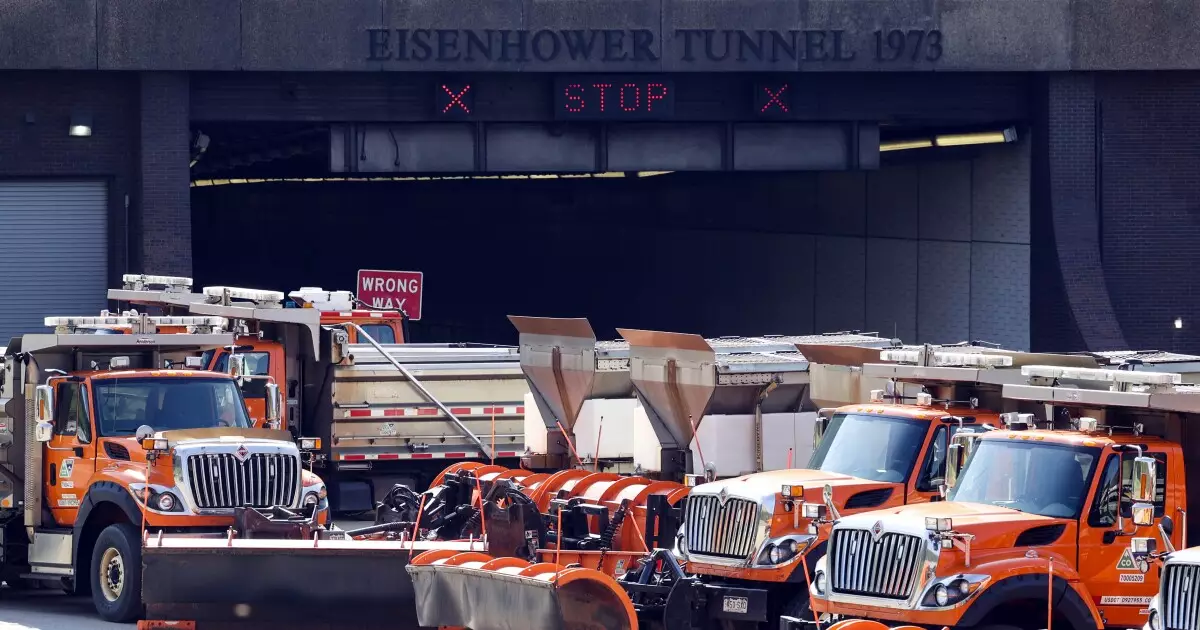Colorado’s financial maneuvers with its Statewide Bridge and Tunnel Enterprise (BTE) reflect a bold, if not controversial, approach to infrastructure funding that embodies the tension between governmental efficiency and public accountability. The BTE’s plan to sell $212.45 million in insured revenue bonds seeks to bolster its project financing capabilities while navigating a convoluted legal framework established under the Taxpayer’s Bill of Rights (TABOR). In an era where infrastructure decay meets fiscal ambition, one has to ponder—at what cost does innovation come, and more importantly, who pays the price when accountability is sidelined?
The inspiring ethos behind the BTE, initiated in 2009 under Colorado’s FASTER Act, was to enhance state infrastructure through what’s called “enterprise” financing. This model, purporting to bypass the stringent constraints of TABOR, raises critical questions: Are Coloradans unwittingly sacrificing direct voter scrutiny for the sake of accelerated infrastructure spending? Advocates argue the flexibility of enterprise funding leads to enhanced public services; critics contend it’s a mere sleight of hand to escape taxpayer limitations, thereby eroding democratic processes.
Legal Limbo and Taxation Loopholes
Central to the BTE’s current turmoil is the ongoing litigation surrounding its fee revenue intended to support infrastructure safety. A lawsuit challenging the enterprise’s ability to levy fees categorizes these as manipulative taxation efforts designed to circumvent TABOR’s stringent limitations. The plaintiffs, spearheaded by Americans for Prosperity, argue that the BTE is exploiting loopholes by labeling taxes as fees, thereby avoiding the threshold of public approval. Remarkably, the enterprise fee revenue brought in $27.8 billion in 2020-2021, overshadowing the measly $16.1 billion generated from actual tax revenue under TABOR—a glaring statistic beckoning public scrutiny.
As Coloradans struggle with a budget shortfall projected to exceed $1 billion for fiscal 2026, the implications are dire. The BTE could find itself trapped in a precarious legal battle that halts critical funding mechanisms just when it needs them most. It raises the proverbial question of whether the ends justify the means when government entities skirt around established checks and balances.
Public Perception and Political Maneuvering
The political landscape surrounding TABOR remains fraught. Democratic representatives, frustrated with the constraints that TABOR places on effective governance, have proposed measures to challenge the constitutionality of the amendment itself, arguing it complicates necessary state functions and service delivery. Representative Sean Camacho highlights the chronic funding issues arising from TABOR, asserting that the time for reform is overdue. However, the blatant disregard for taxpayer input raises alarm bells. Are politicians prioritizing expedient solutions over the long-term fabric of public accountability, thus risking voter disillusionment?
The transition from government accountability to enterprise efficiency often dilutes the fundamental principles of taxation and governance. Legislative moves to invalidate TABOR could be perceived as an affront to voter agency, potentially polarizing constituents in a state known for its commitment to fiscal conservatism. The implicit struggle between liberalized governmental spending and the entrenched rights of taxpayers presents a duality that is increasingly difficult to reconcile.
The Risks of Debt Dependency
With $212 million in revenue bonds on the auction block, the BTE is banking on strong demand and investor confidence. Insured by Assured Guaranty, these bonds carry a robust rating from several agencies, indicating a perceived viability despite current turmoil. Yet, creditors must consider the inherent risk involved in these promises: at what point does the reliance on borrowed funds to fill budgetary gaps become a cycle of debt that citizens will one day pay for?
While the projected revenue from bridge surcharges and gasoline fees appears optimistic, the ongoing legal difficulties cast uncertainty over future cash flows. If the court rules against the BTE’s funding structure, this could destabilize the entire framework and leave Colorado scrambling to cover its debts—an ironic twist for an entity designed to safeguard public infrastructure.
By adopting an enterprise model, has Colorado effectively traded robust taxpayer engagement for expediency? The scheme raises significant ethical implications about the nature of governance, where decisions are often made in boardrooms rather than by ballots. While the push for modernizing infrastructure is commendable, it must not occur at the expense of stripping citizens of their rightful say in the legislation that affects their lives.
As Colorado endeavors to navigate the uncharted waters of enterprise funding and public accountability, it must tread carefully or risk alienating the very constituents it aims to serve. In this quest for accelerated infrastructure, true public engagement must not be sacrificed on the altar of expedient governance.

